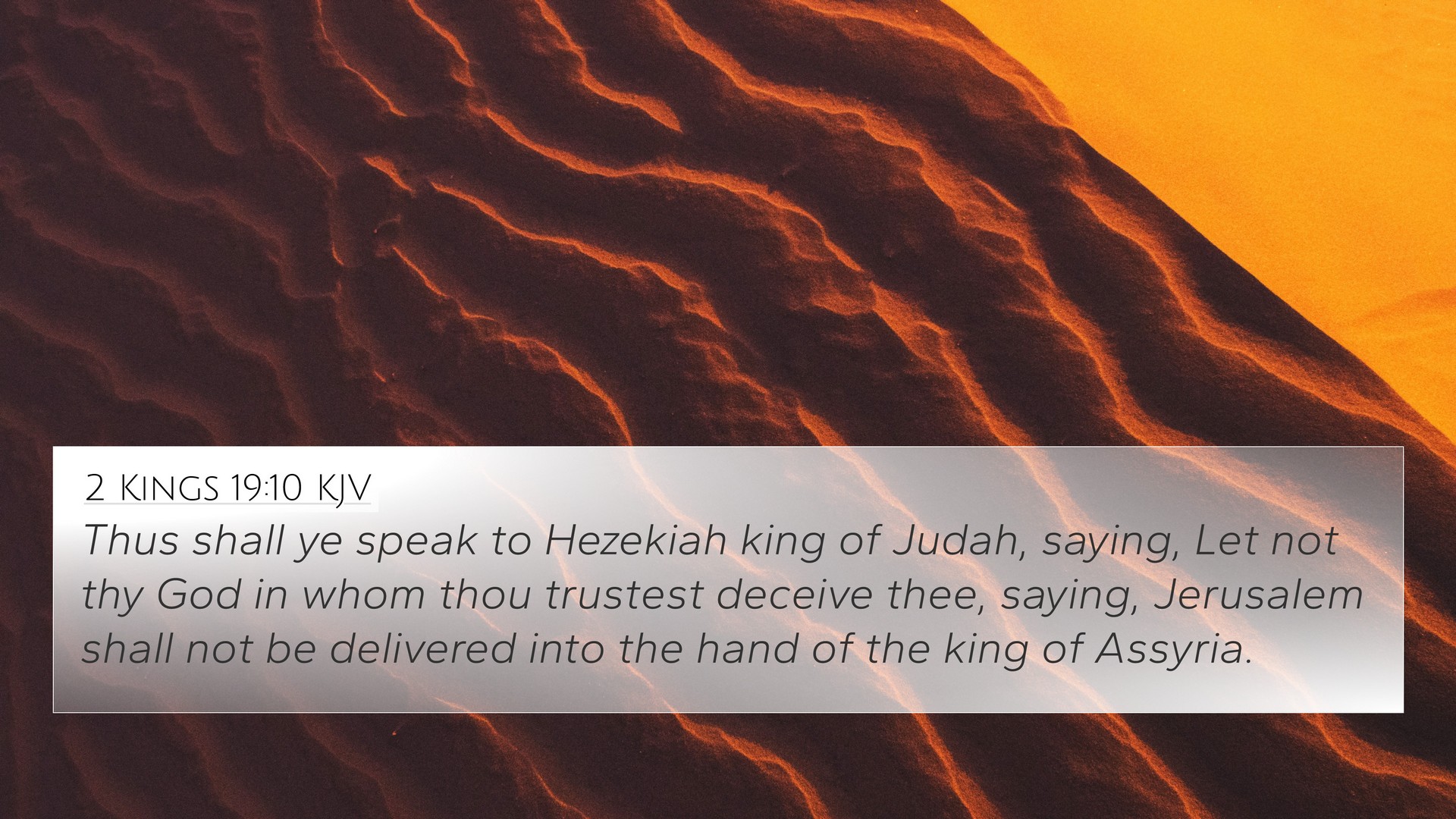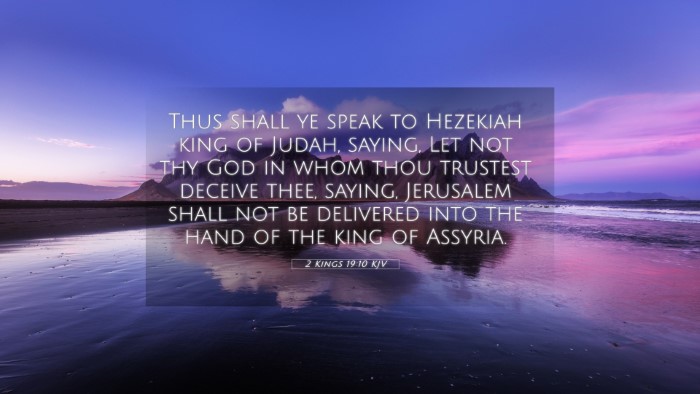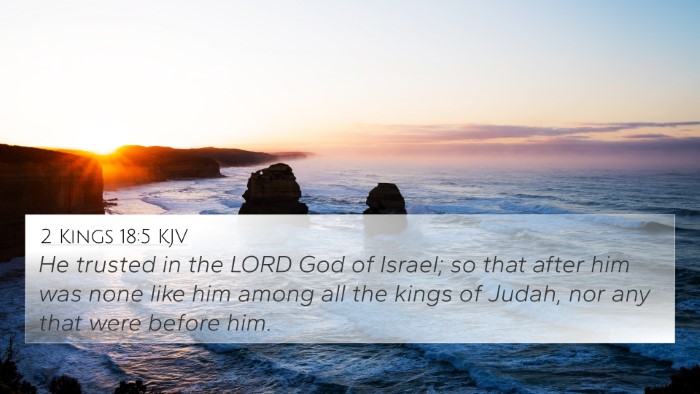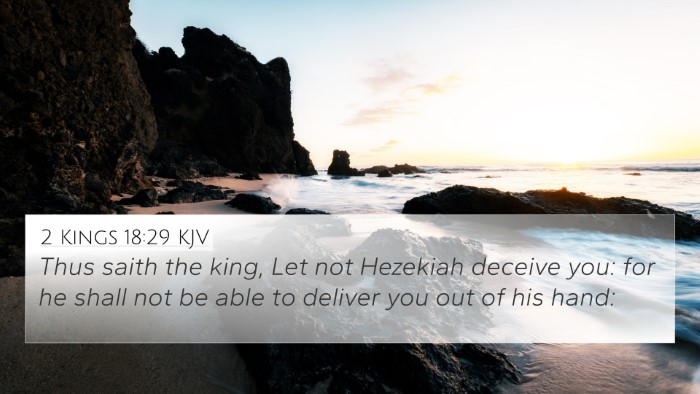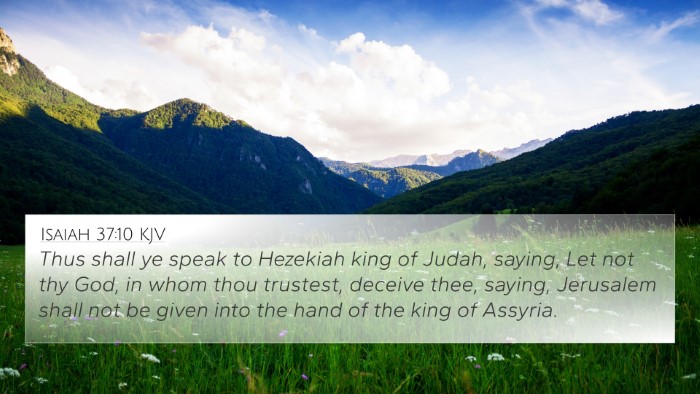Old Testament
Genesis Exodus Leviticus Numbers Deuteronomy Joshua Judges Ruth 1 Samuel 2 Samuel 1 Kings 2 Kings 1 Chronicles 2 Chronicles Ezra Nehemiah Esther Job Psalms Proverbs Ecclesiastes Song of Solomon Isaiah Jeremiah Lamentations Ezekiel Daniel Hosea Joel Amos Obadiah Jonah Micah Nahum Habakkuk Zephaniah Haggai Zechariah MalachiVerse
2 Kings 19:1 2 Kings 19:2 2 Kings 19:3 2 Kings 19:4 2 Kings 19:5 2 Kings 19:6 2 Kings 19:7 2 Kings 19:8 2 Kings 19:9 2 Kings 19:10 2 Kings 19:11 2 Kings 19:12 2 Kings 19:13 2 Kings 19:14 2 Kings 19:15 2 Kings 19:16 2 Kings 19:17 2 Kings 19:18 2 Kings 19:19 2 Kings 19:20 2 Kings 19:21 2 Kings 19:22 2 Kings 19:23 2 Kings 19:24 2 Kings 19:25 2 Kings 19:26 2 Kings 19:27 2 Kings 19:28 2 Kings 19:29 2 Kings 19:30 2 Kings 19:31 2 Kings 19:32 2 Kings 19:33 2 Kings 19:34 2 Kings 19:35 2 Kings 19:36 2 Kings 19:37